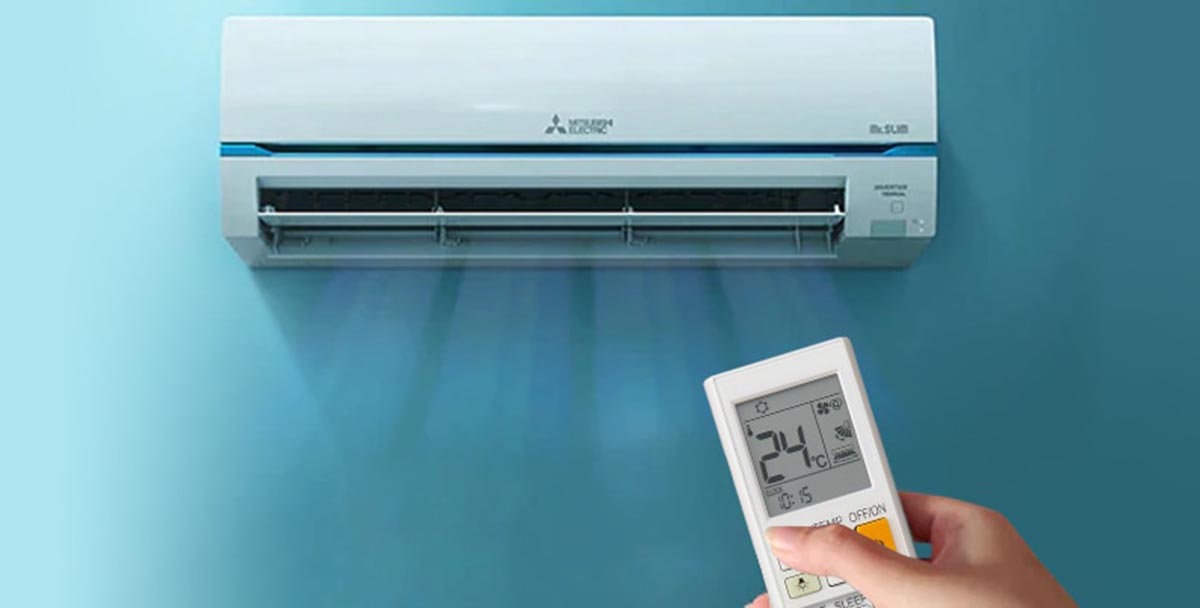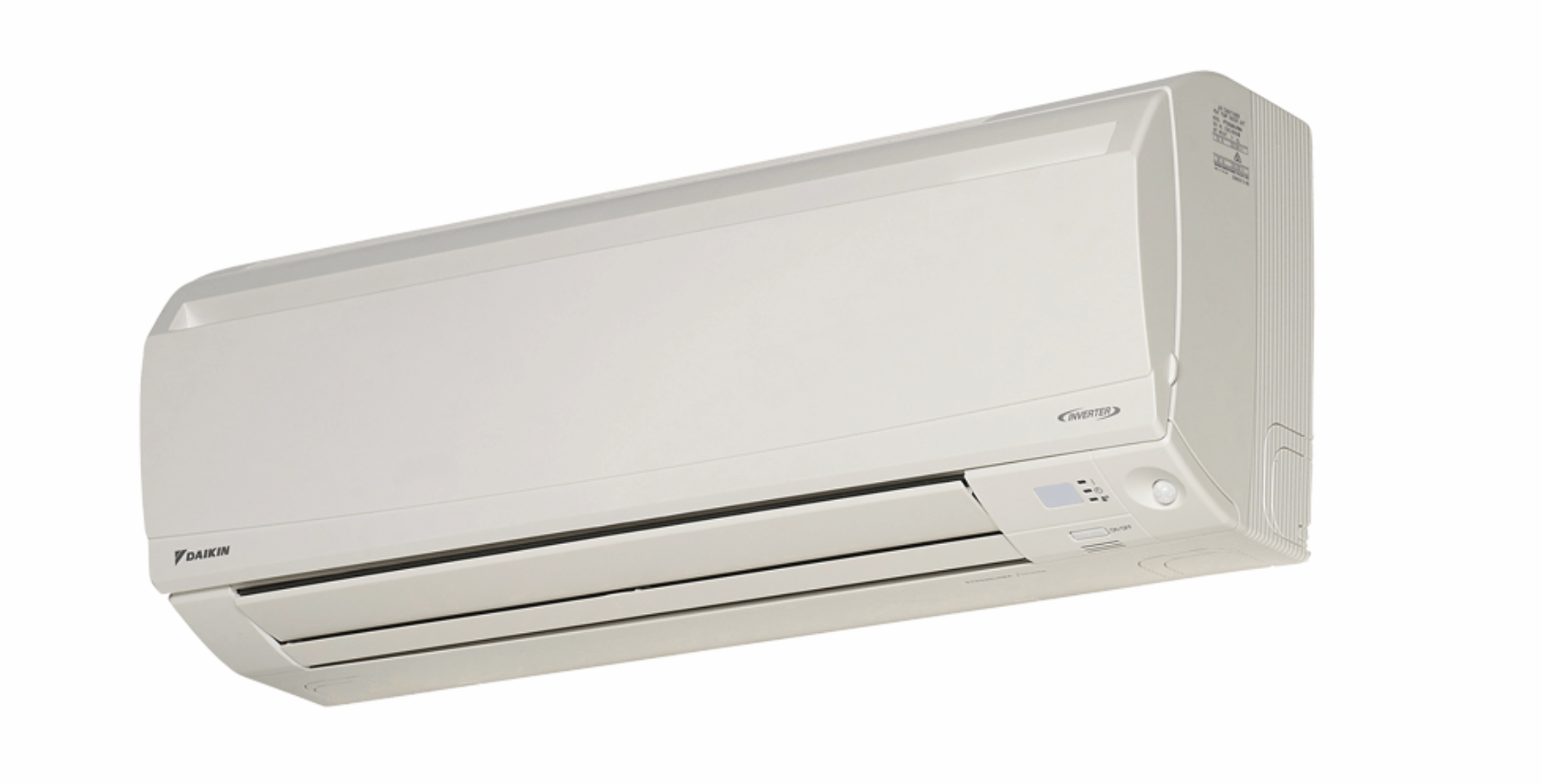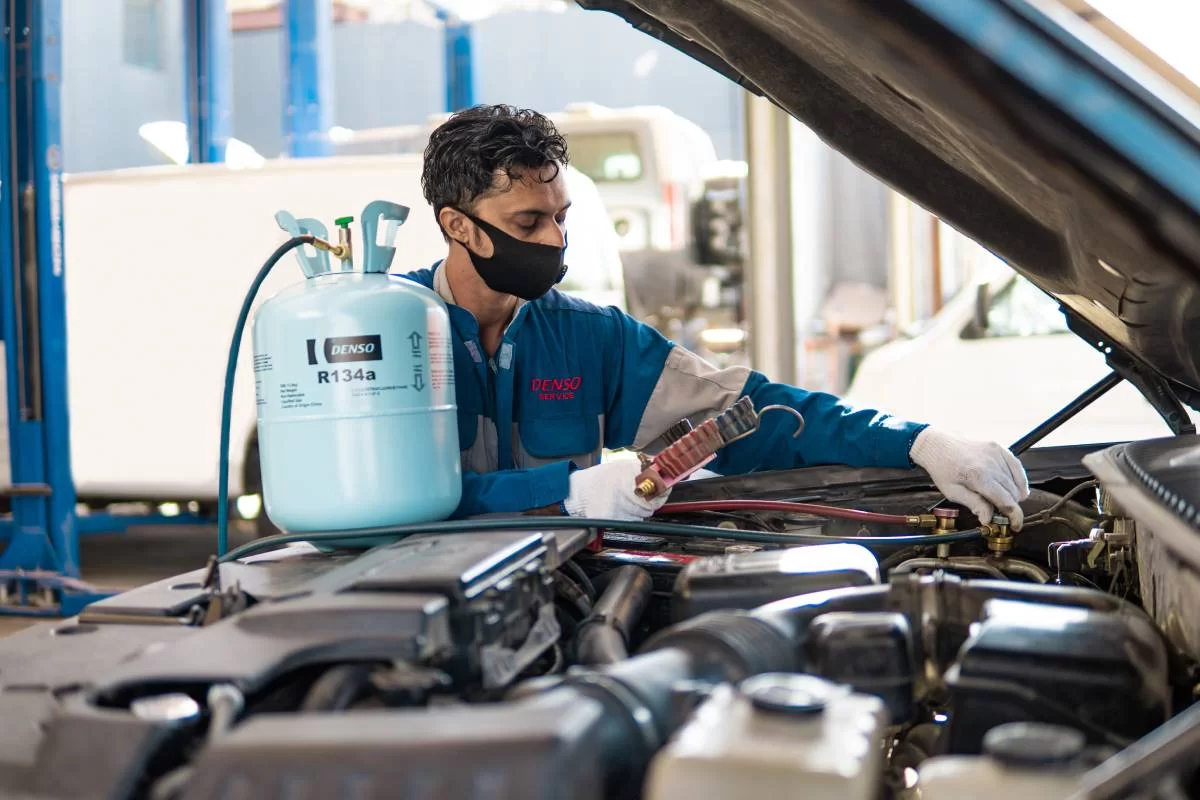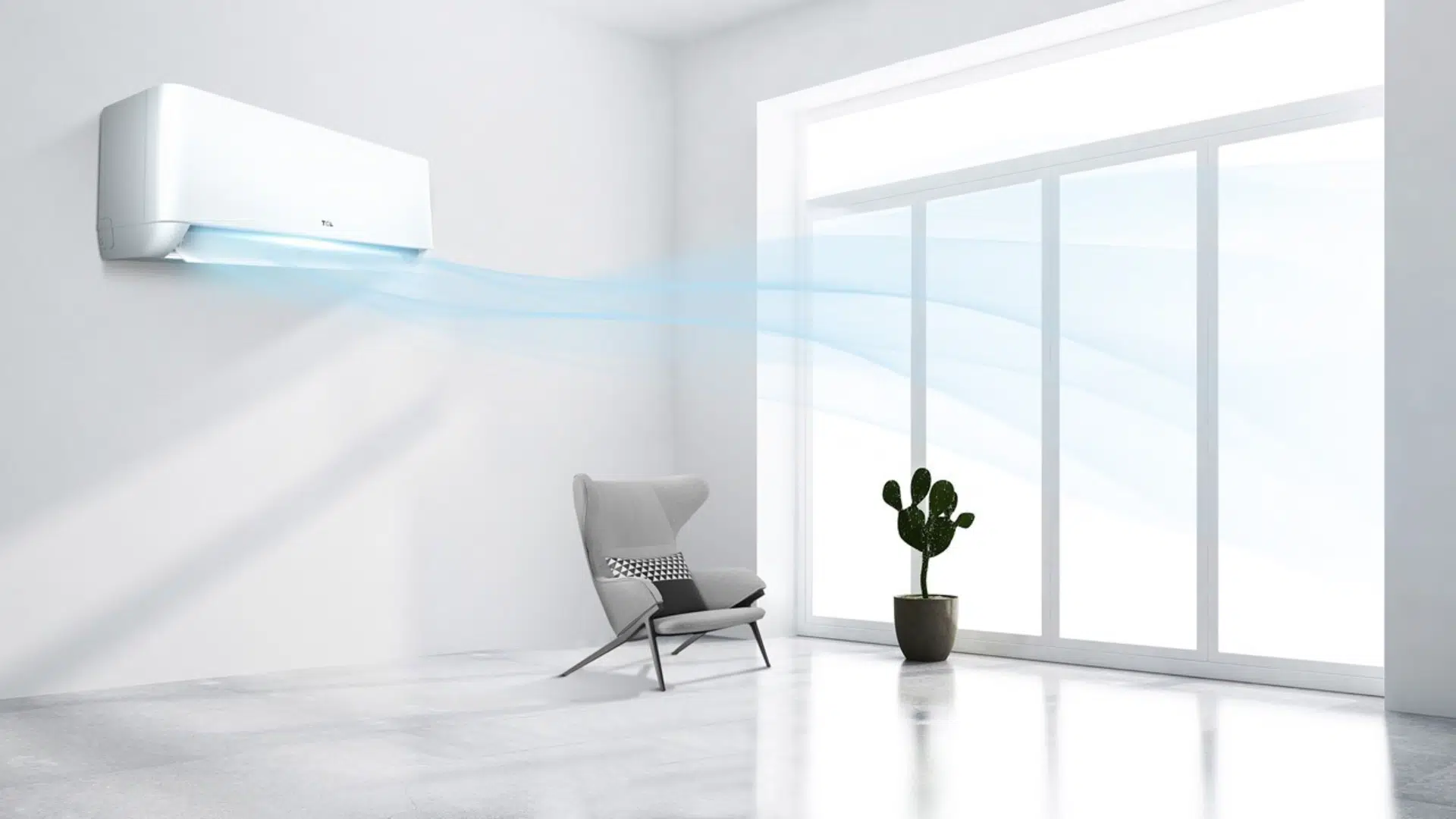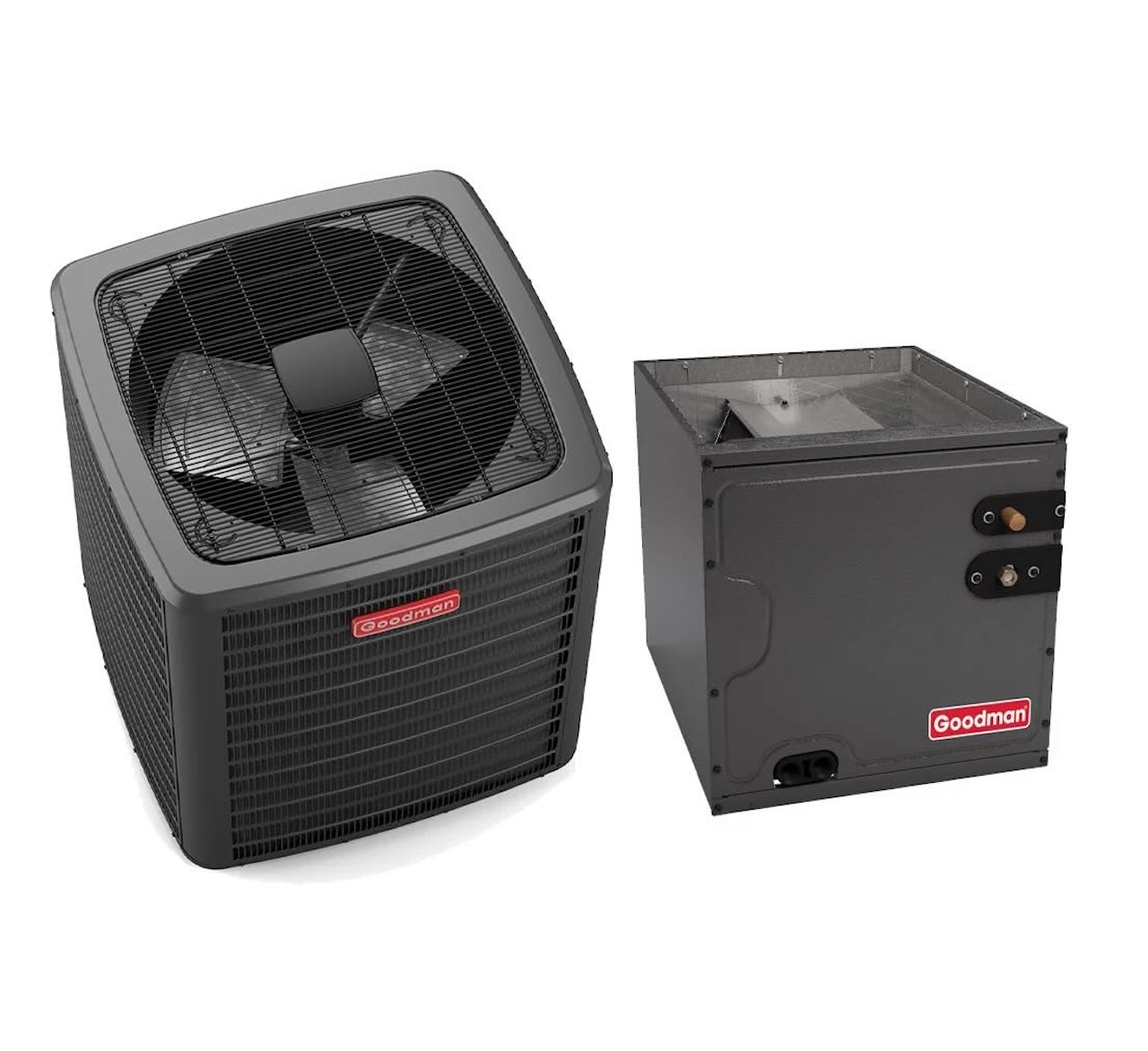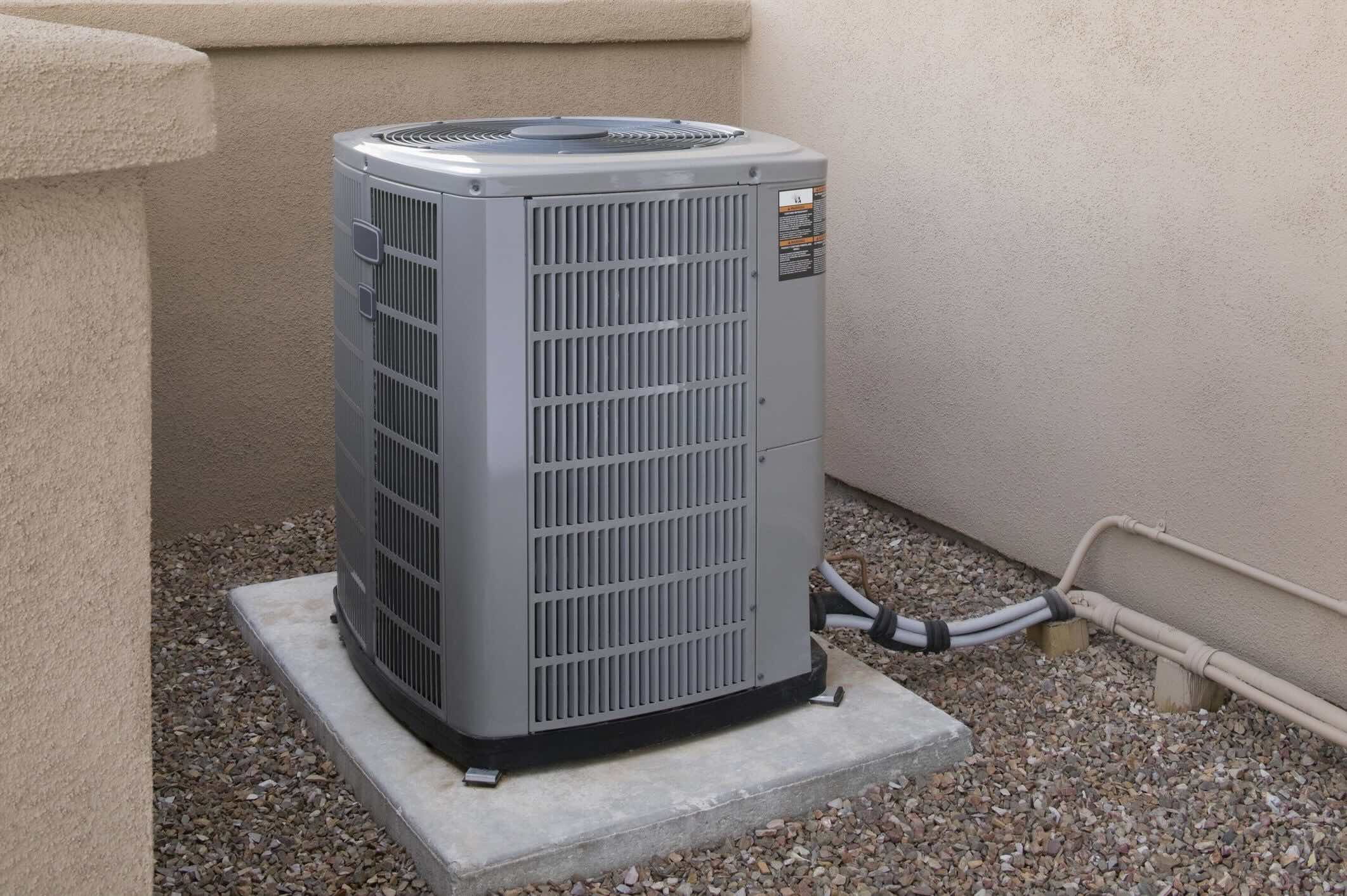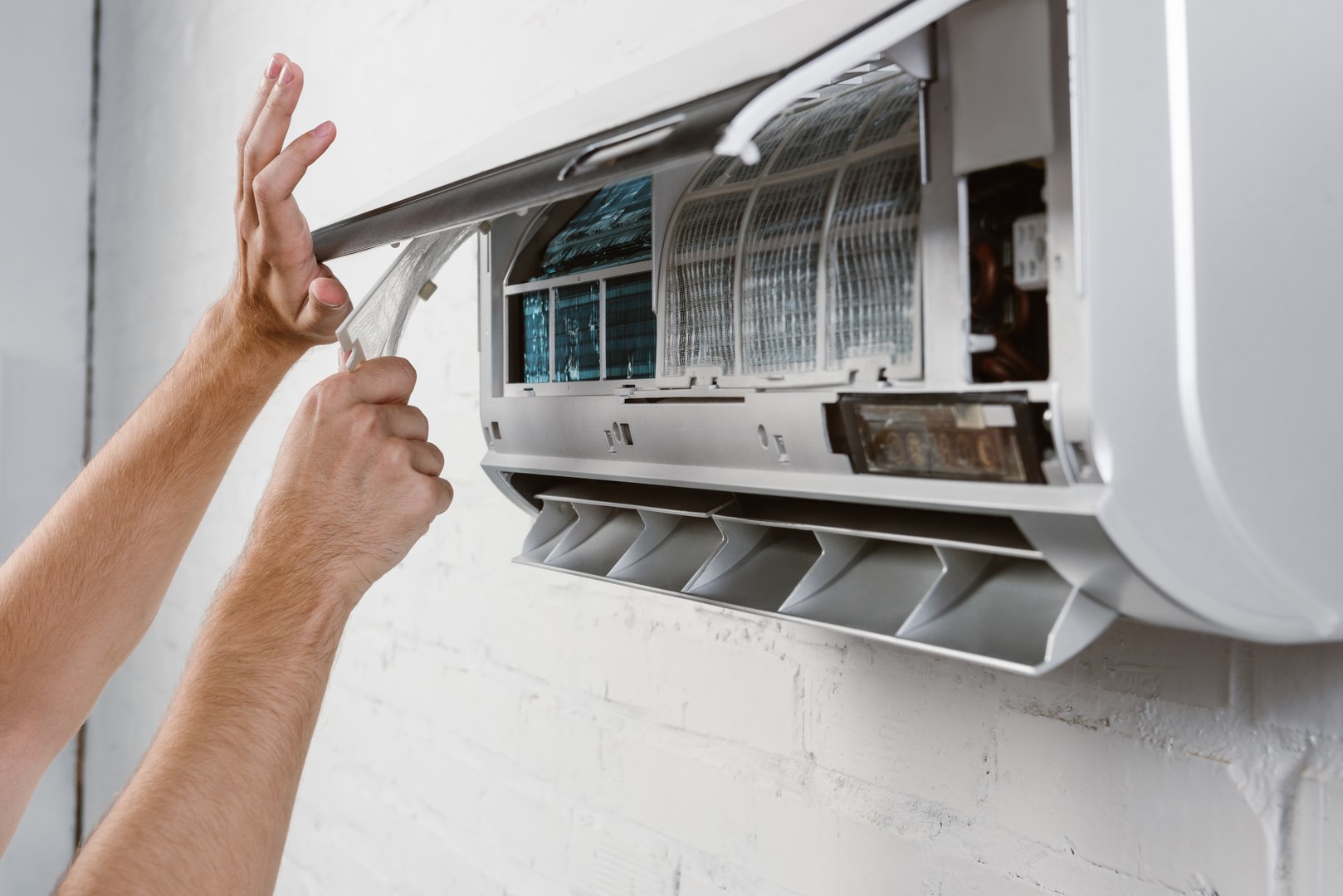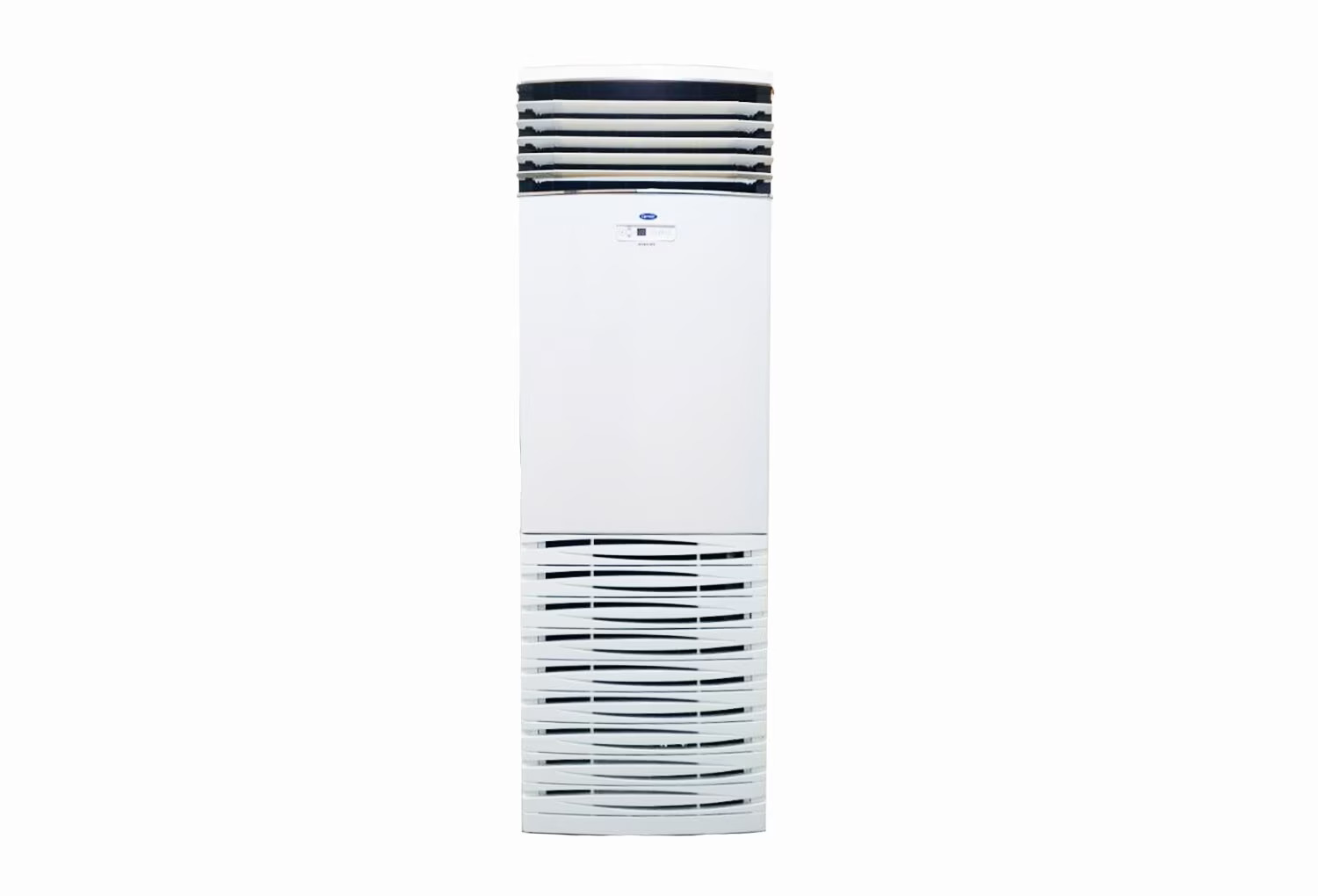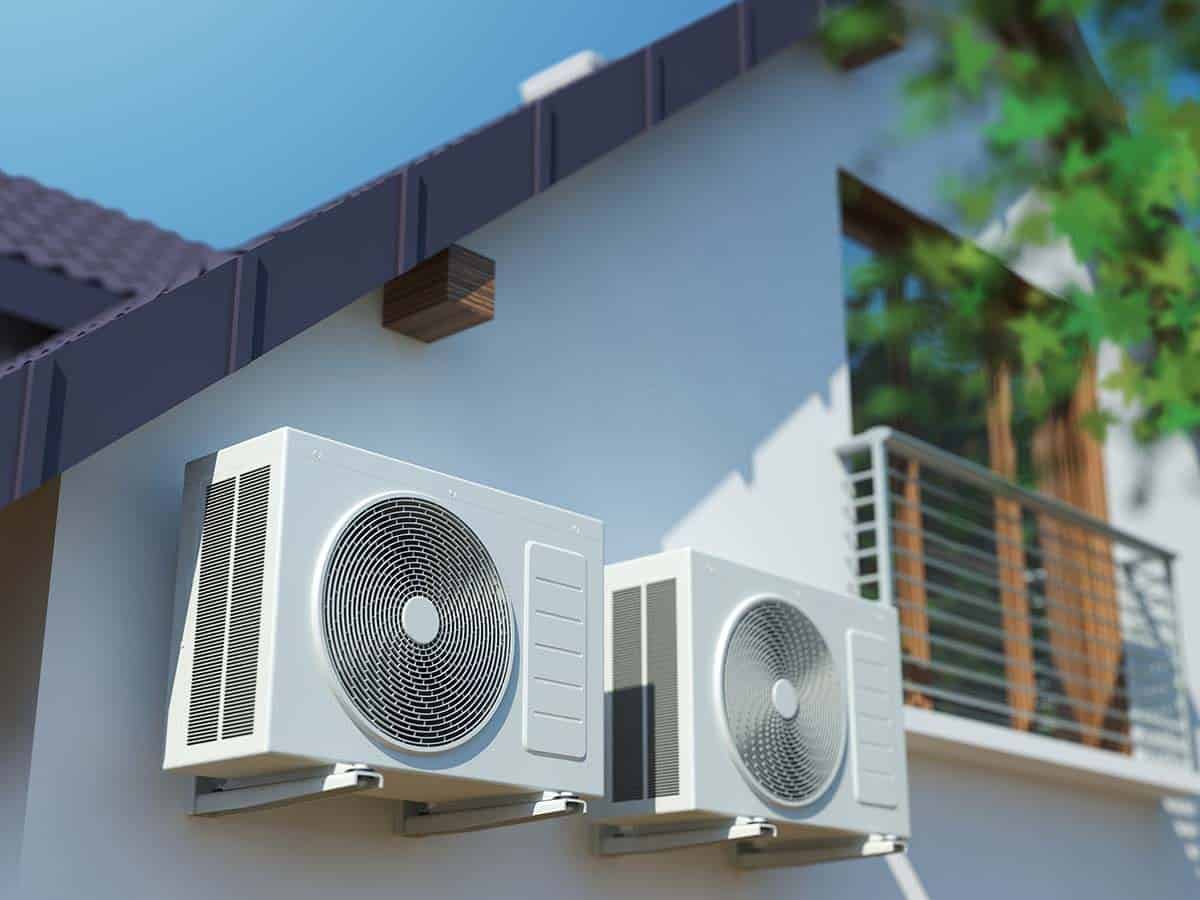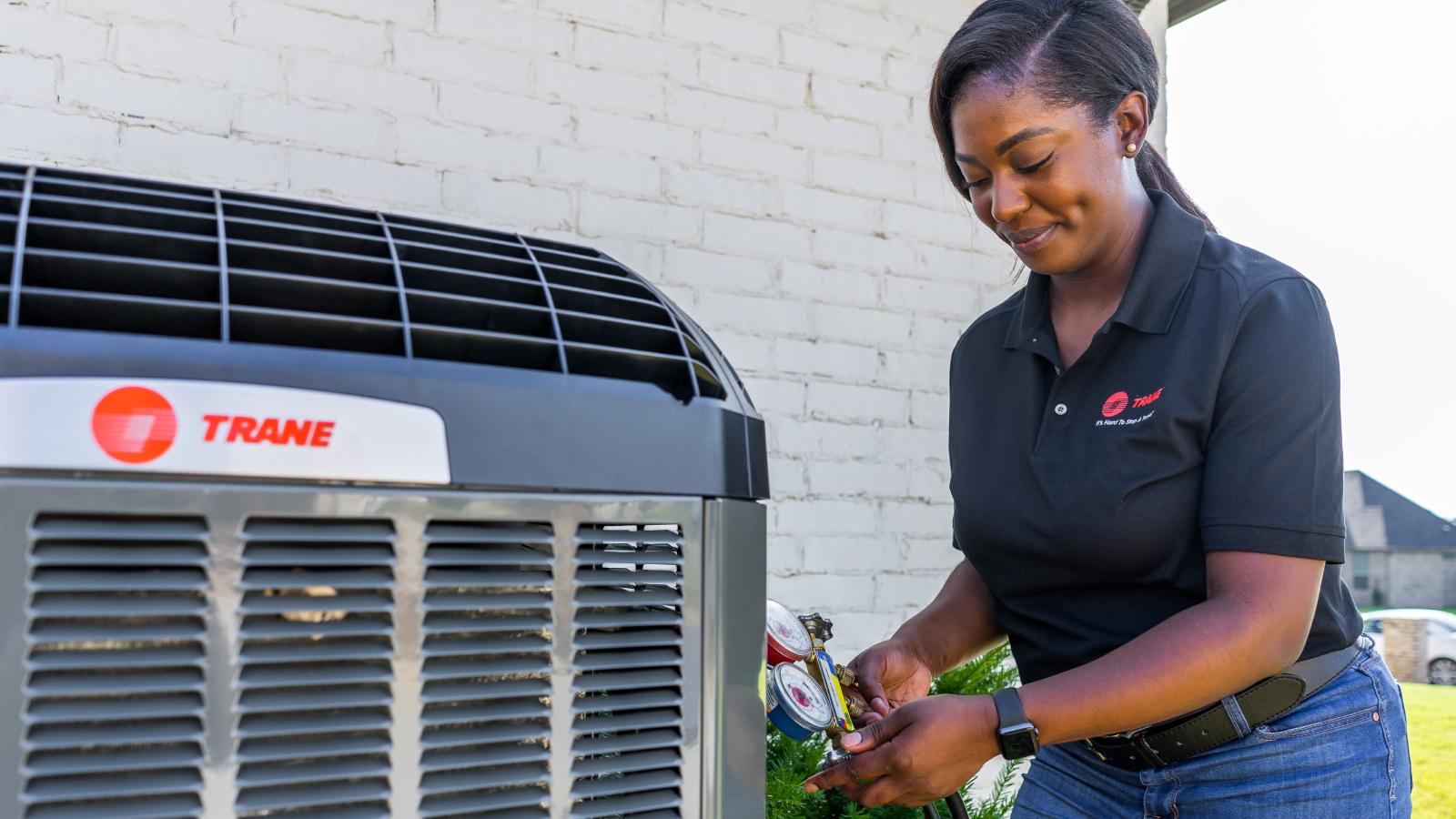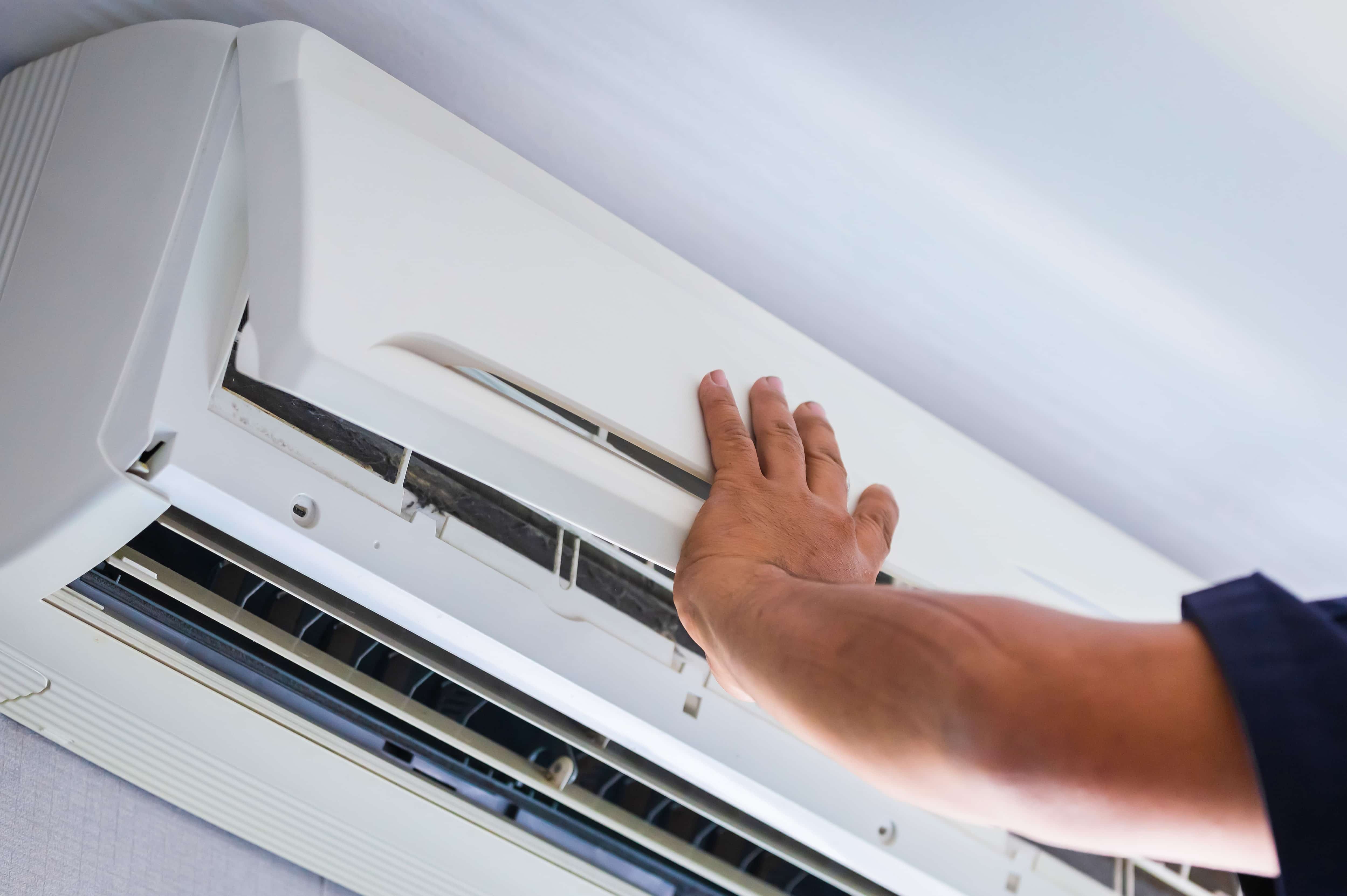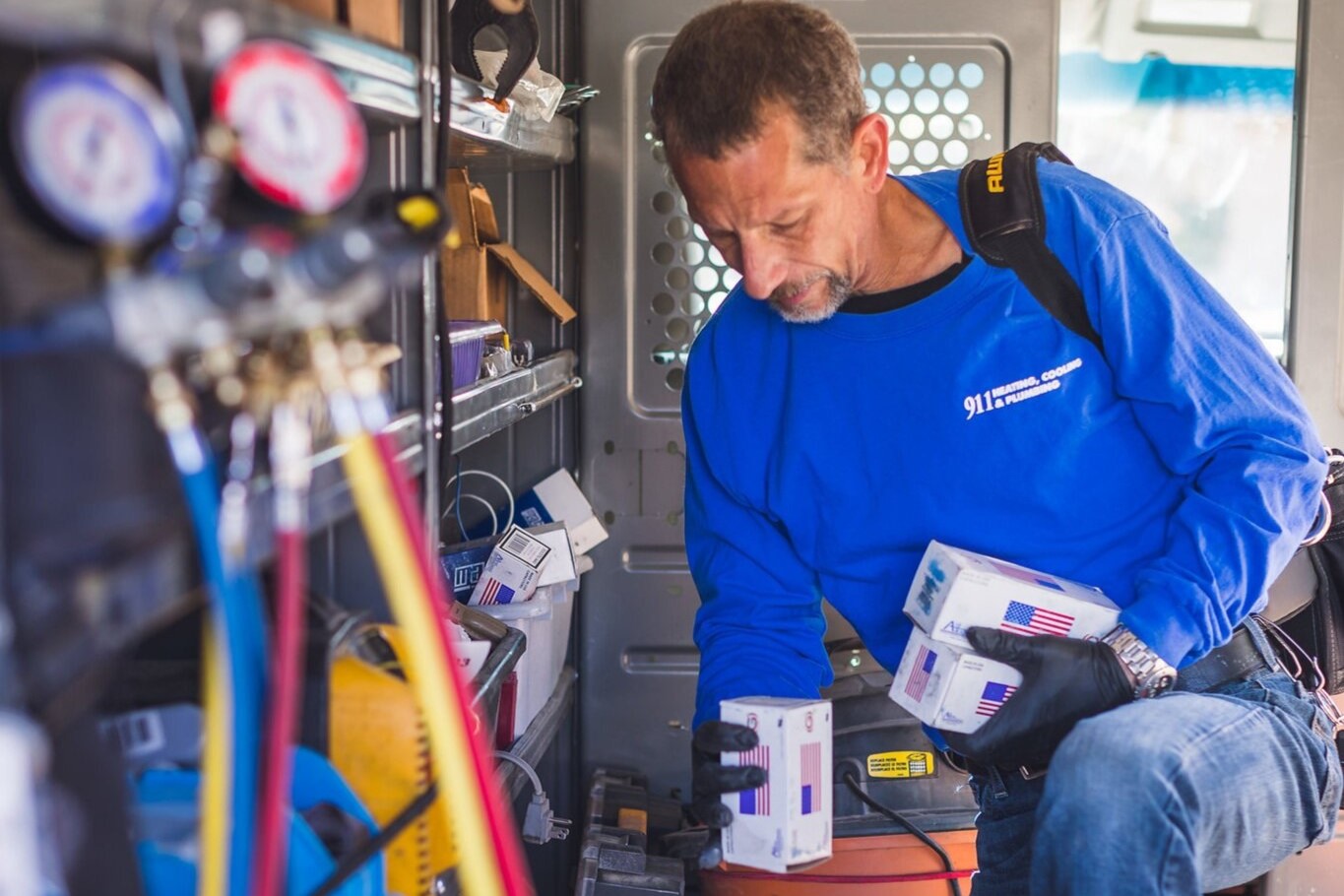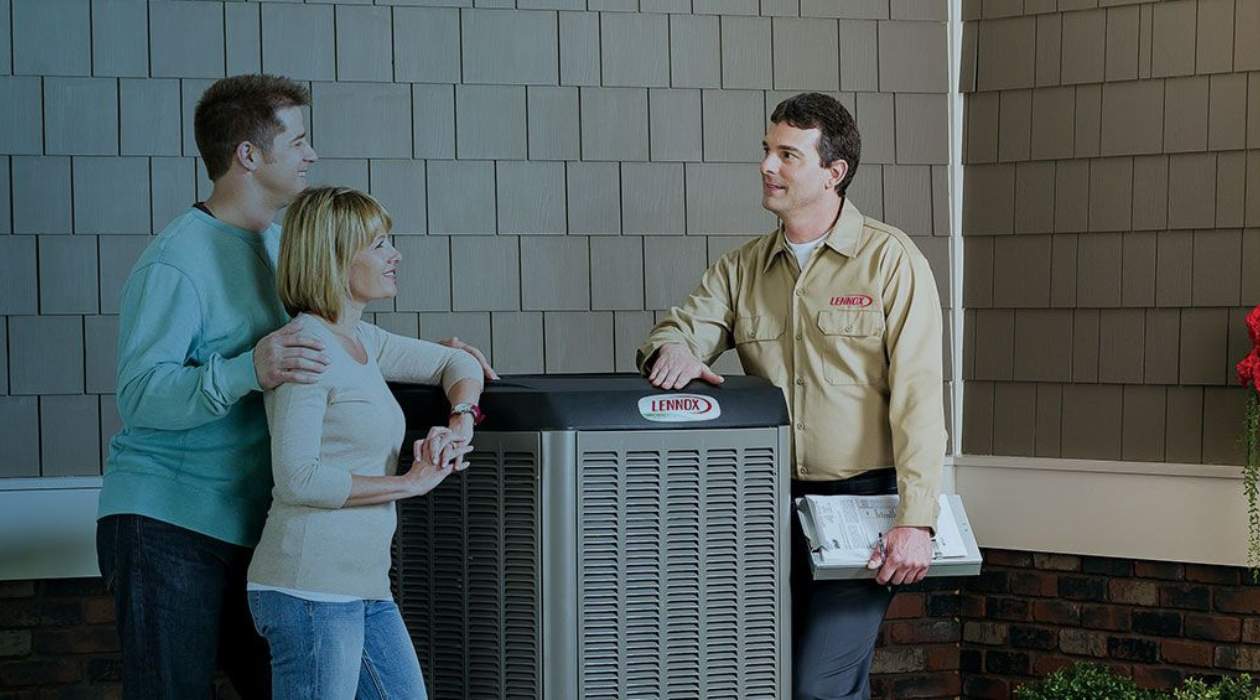Home>Home Maintenance>How Much Is A Mitsubishi Air Conditioner
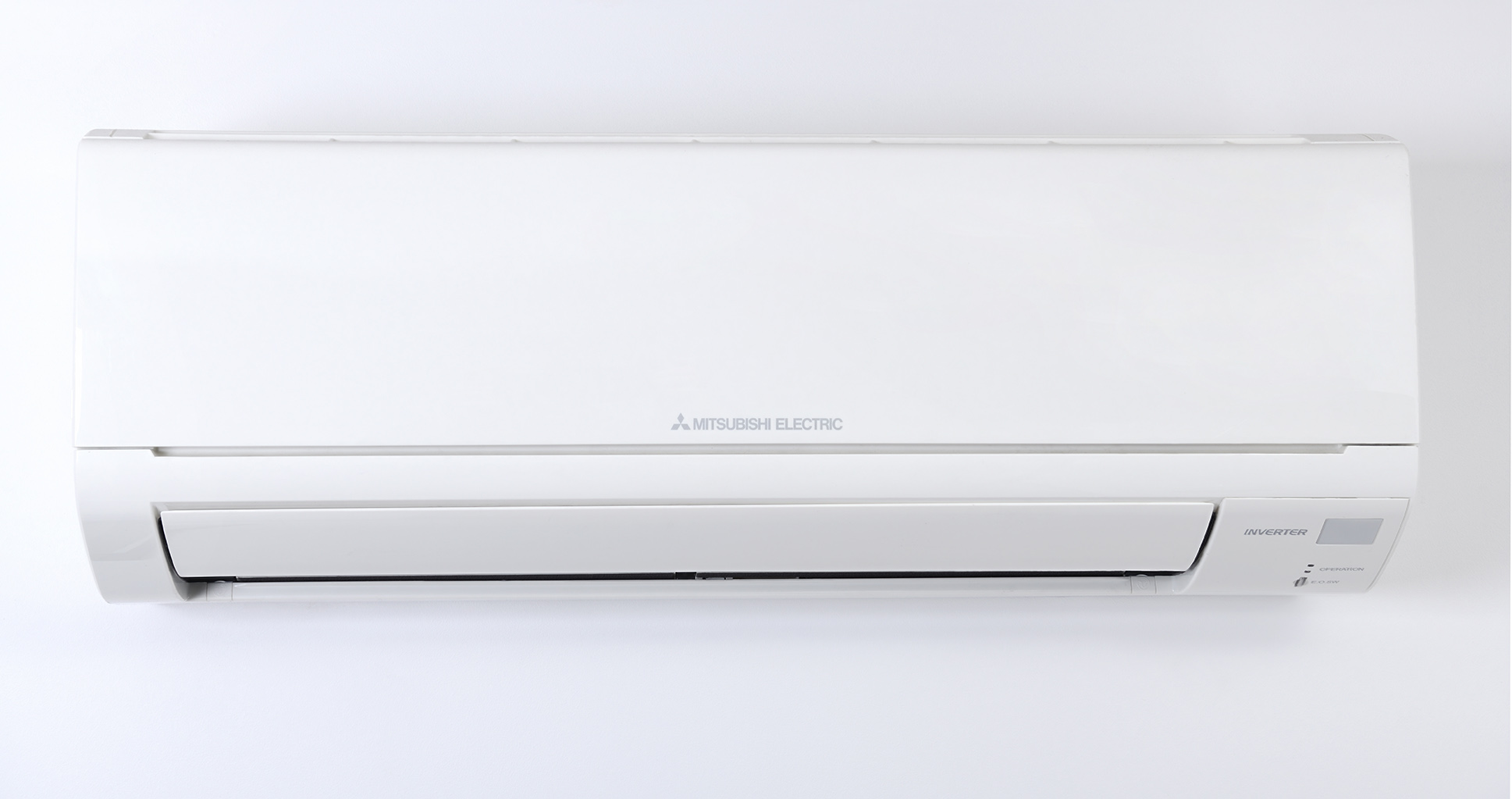

Home Maintenance
How Much Is A Mitsubishi Air Conditioner
Modified: October 28, 2024
Get an estimate on the cost of a Mitsubishi air conditioner for your home maintenance needs. Find out how much you'll need to budget for this essential upgrade.
(Many of the links in this article redirect to a specific reviewed product. Your purchase of these products through affiliate links helps to generate commission for Storables.com, at no extra cost. Learn more)
Introduction
When it comes to beating the summer heat, a reliable air conditioner is a must-have for every home. With numerous brands and models available in the market, it can be overwhelming to choose the right one. However, Mitsubishi air conditioners are renowned for their high-quality performance and durability.
Mitsubishi Electric is a well-established name in the home maintenance industry, known for producing top-notch air conditioning systems. With their commitment to innovative technology and energy efficiency, Mitsubishi air conditioners offer exceptional comfort while minimizing environmental impact.
In this article, we will explore the different types of Mitsubishi air conditioners, factors affecting their pricing, average price ranges, and additional costs to consider. We will also discuss the benefits of owning a Mitsubishi air conditioner and provide guidance on how to choose the right model for your specific needs. Lastly, we will cover maintenance and warranty information to help you make an informed decision.
So, if you are considering investing in a Mitsubishi air conditioner for your home, read on to discover everything you need to know.
Key Takeaways:
- Mitsubishi air conditioners offer various types to suit different needs, from single-room cooling to whole-house solutions, providing reliable and efficient comfort for homes of all sizes.
- Consider factors like cooling requirements, energy efficiency, and additional features when choosing a Mitsubishi air conditioner, and prioritize regular maintenance to ensure long-lasting performance and optimal comfort.
Types of Mitsubishi Air Conditioners
Mitsubishi offers a wide range of air conditioners to cater to different household needs. Here are some of the most popular types:
- Split Systems: Split system air conditioners consist of two main components: an indoor unit and an outdoor unit. The indoor unit is installed inside the room, while the outdoor unit is placed outside the building. This type of system is ideal for cooling a single room or a specific zone within a larger area.
- Multi-Split Systems: Multi-split systems are similar to split systems but allow for multiple indoor units to be connected to a single outdoor unit. This enables you to have independent temperature control in different spaces within your home. It’s a great option if you want flexibility with your cooling options.
- Ducted Systems: Ducted air conditioning systems are designed to cool an entire house or multiple rooms simultaneously. They consist of a central outdoor unit connected to a network of ducts that distribute cooled air throughout the building. This type of system is discreet, as it hides the indoor unit in the ceiling or wall, providing a seamless appearance.
- Cassette Systems: Cassette systems are often used in commercial or larger residential settings. They are mounted in the ceiling and have four-way directional airflow, ensuring even cooling throughout the room. Cassette systems are stylish, compact, and can complement any interior design.
- Floor Console Systems: Floor console systems are designed to be mounted on the floor, making them perfect for rooms with limited wall or ceiling space. These units provide effective heating and cooling and can be easily installed in various locations, such as under windows.
- Window/Wall Systems: Window or wall air conditioners are self-contained units that are typically installed through a window or a hole in the wall. These units are compact and suitable for cooling small to medium-sized rooms. They offer a cost-effective cooling solution for those on a budget.
Mitsubishi air conditioners come in different capacities to suit various room sizes and cooling requirements. Whether you need to cool a single room or your entire home, Mitsubishi has a range of options to meet your specific needs and preferences.
Factors Affecting the Price of Mitsubishi Air Conditioners
Several factors influence the price of Mitsubishi air conditioners. Understanding these factors will help you make an informed decision and budget accordingly. Here are the key factors to consider:
- System Type: The type of Mitsubishi air conditioner you choose will significantly impact its price. Split systems and window/wall units are generally more affordable compared to ducted or multi-split systems, which require more extensive installation and additional components.
- Capacity: The cooling capacity of an air conditioner is measured in British Thermal Units (BTUs), indicating its power to cool a specific area. Higher BTU ratings are generally more expensive as they can cool larger spaces more efficiently. It’s essential to choose an air conditioner with an appropriate capacity for the room or area you intend to cool.
- Energy Efficiency: Energy-efficient models may have a higher upfront cost but can save you money in the long run. Mitsubishi air conditioners with higher energy efficiency ratings tend to be pricier due to advanced technologies and features designed to minimize energy consumption.
- Installation Requirements: The complexity of the installation process can affect the overall cost. Ducted systems, for example, require professional installation and ductwork, which can increase the price compared to simpler systems that can be installed without extensive modifications to your home.
- Additional Features: Mitsubishi air conditioners offer various additional features that enhance comfort and convenience. These features can include programmable timers, remote controls, Wi-Fi connectivity, advanced air purification systems, and zoned cooling capabilities. Air conditioners with more advanced features may have a higher price tag.
- Location: The location where you purchase the Mitsubishi air conditioner can also impact the price. Prices may vary based on regional factors such as supply and demand, competition, and local installation costs.
It’s essential to consider your specific requirements, budget, and long-term cost savings when deciding on the features and specifications of your Mitsubishi air conditioner. While price is an important consideration, it should be balanced with energy efficiency, performance, and durability to ensure you make the best investment for your home comfort needs.
Average Price Ranges for Mitsubishi Air Conditioners
The price of Mitsubishi air conditioners can vary depending on the model, capacity, features, and installation requirements. Here is a general overview of the average price ranges for Mitsubishi air conditioners:
- Split Systems: The average price range for Mitsubishi split systems is between $1,000 and $3,000. This includes the cost of both the outdoor and indoor units.
- Multi-Split Systems: Multi-split systems are typically priced higher than split systems due to the added capability of connecting multiple indoor units to a single outdoor unit. The average price range for Mitsubishi multi-split systems is between $3,000 and $7,000, depending on the number of indoor units and the capacity.
- Ducted Systems: Ducted air conditioning systems are more expensive due to the complexity of installation and the larger area they can cool. The average price range for Mitsubishi ducted systems starts at around $5,000 and can go up to $15,000 or more, depending on the size of the house and the specific requirements.
- Cassette Systems: Cassette systems are generally priced in the mid-range. The average price range for Mitsubishi cassette systems is between $2,000 and $4,000, depending on the capacity and additional features.
- Floor Console Systems: The average price range for Mitsubishi floor console systems is between $1,500 and $3,500. The price can vary based on the capacity and specific features of the unit.
- Window/Wall Systems: Window or wall air conditioners are the most affordable option. The average price range for Mitsubishi window/wall systems is between $500 and $1,500, depending on the capacity and additional features.
It’s important to note that these price ranges are rough estimates and can vary based on factors such as location, installation costs, and any additional features or customization options you choose. Consulting with a local Mitsubishi dealer or professional installer will give you a more accurate idea of the prices for your specific requirements.
Remember, investing in a high-quality Mitsubishi air conditioner can provide long-lasting comfort and energy efficiency, making it a worthwhile investment for your home and well-being.
Additional Costs to Consider
When budgeting for a Mitsubishi air conditioner, it’s important to consider the additional costs that may arise. While the upfront cost of the unit is a significant factor, there are other expenses to keep in mind. Here are some additional costs to consider:
- Installation: The cost of installation can vary depending on the complexity of the system and your location. It’s recommended to hire a professional installer who is experienced in Mitsubishi air conditioning systems. The installation cost may include labor charges, materials, additional components, and any necessary modifications to your home’s electrical or structural systems.
- Accessories and Add-Ons: Depending on your specific needs and preferences, you may require additional accessories or add-ons for your Mitsubishi air conditioner. For example, if you opt for a split system, you may need mounting brackets, drainage kits, or specialized controllers. These additional items can add to the overall cost.
- Maintenance and Servicing: Regular maintenance is essential to keep your Mitsubishi air conditioner in optimal condition. This may involve cleaning the filters, inspecting and replacing worn-out parts, and ensuring proper functioning. While some maintenance tasks can be done by homeowners, professional servicing may be required periodically, which can incur additional costs.
- Energy Consumption: While Mitsubishi air conditioners are known for their energy efficiency, it’s important to consider the impact on your energy bills. Cooling a larger space or operating the unit for extended periods can increase energy consumption. Be sure to factor in the potential increase in your utility bills when calculating the cost of owning and operating a Mitsubishi air conditioner.
- Extended Warranty: Mitsubishi air conditioners usually come with a standard warranty, but you may have the option to purchase an extended warranty for added peace of mind. These warranties cover certain repairs and replacements beyond the standard warranty period. The cost of an extended warranty will depend on the coverage and duration selected.
It’s important to budget for these additional costs to ensure you have a complete understanding of the overall investment required. Consulting with a Mitsubishi dealer or professional installer can provide you with a detailed breakdown of these costs based on your specific needs and circumstances.
By considering these additional costs, you can have a more accurate estimation of the total expenses involved in installing, maintaining, and operating a Mitsubishi air conditioner, allowing you to make an informed decision and enjoy the benefits of a reliable and efficient cooling system.
When considering the cost of a Mitsubishi air conditioner, it’s important to factor in the size of the unit, installation costs, and any additional features or upgrades. Prices can vary, so it’s best to get quotes from multiple vendors to find the best deal.
Read more: How To Clean A Mitsubishi Air Conditioner
Benefits of Owning a Mitsubishi Air Conditioner
Investing in a Mitsubishi air conditioner offers numerous benefits that contribute to a comfortable and enjoyable living environment. Here are some key advantages of owning a Mitsubishi air conditioner:
- Energy Efficiency: Mitsubishi air conditioners are designed with advanced technologies to maximize energy efficiency. With features like variable-speed compressors and smart sensors, these units can intelligently adjust cooling levels to minimize energy consumption. This not only reduces your carbon footprint but also helps lower your energy bills.
- Exceptional Cooling Performance: Mitsubishi air conditioners are known for their powerful cooling capabilities. Whether you choose a split system, multi-split system, ducted system, or any other type, you can expect reliable and efficient cooling throughout your home. With precise temperature control and high airflow, Mitsubishi units provide optimal comfort even on hot summer days.
- Quiet Operation: Mitsubishi air conditioners are designed with noise reduction in mind. They utilize advanced technologies to minimize operational noise levels, ensuring a peaceful and quiet environment. This is especially beneficial for bedrooms, living rooms, or any area where low noise is preferred.
- Improved Indoor Air Quality: Mitsubishi air conditioners feature advanced filtration systems that effectively remove dust, allergens, and airborne particles from the indoor air. This helps create a healthier living space by reducing the presence of pollutants that can trigger allergies or respiratory issues. Clean air is particularly important for individuals with asthma or allergies.
- Customizable Zoning: With multi-split and ducted systems, Mitsubishi offers the flexibility of customizable zoning. This allows you to control the temperature and airflow in different zones or rooms independently. This feature not only enhances comfort but also helps save energy by only cooling the areas that are in use.
- Durable and Reliable: Mitsubishi air conditioners are built to last. With high-quality components and rigorous testing, you can expect reliability and longevity from your Mitsubishi unit. These robust systems are designed to withstand demanding conditions and provide consistent performance year after year.
- User-Friendly Features: Mitsubishi air conditioners come with user-friendly features that make operation convenient and effortless. Many models offer programmable timers, remote control functionality, and compatibility with smartphone apps for remote access and control. These features provide convenience and allow you to adjust the settings according to your schedule and preferences.
By owning a Mitsubishi air conditioner, you can experience improved indoor comfort, energy efficiency, and enhanced air quality. These benefits not only contribute to a more pleasant living environment but also provide cost savings through reduced energy consumption. When considering your options for cooling your home, Mitsubishi air conditioners are an excellent choice for reliable, efficient, and comfortable cooling.
How to Choose the Right Mitsubishi Air Conditioner for Your Needs
Choosing the right Mitsubishi air conditioner for your needs involves considering several factors to ensure optimal performance and suitability for your home. Here are some tips to help guide your selection process:
- Determine Your Cooling Requirements: Assess your cooling needs by considering the size of the area you want to cool. Measure the square footage of the room or rooms and consider factors such as ceiling height, insulation, and sun exposure. This will help you determine the appropriate cooling capacity (BTUs) required for efficient cooling.
- Select the Type of Air Conditioner: Consider the different types of Mitsubishi air conditioners available and choose one that suits your specific requirements. Split systems are ideal for cooling individual rooms, while ducted systems are suitable for whole-house cooling. Multi-split systems offer flexibility by allowing multiple indoor units to be connected to a single outdoor unit.
- Evaluate Energy Efficiency: Look for Mitsubishi air conditioners with high energy efficiency ratings, as they will consume less energy and save you money in the long run. Consider units with Energy Star certification, which indicates superior energy performance.
- Assess Additional Features: Determine any additional features or functionalities that are important to you. These can include programmable timers, Wi-Fi connectivity, advanced air filtration systems, or even voice control compatibility. Choose the features that will enhance your comfort and convenience.
- Consider Noise Levels: If noise is a concern, prioritize air conditioners with lower operation noise. Mitsubishi units are known for their quiet operation, but it’s best to check the noise level specifications provided by the manufacturer.
- Consult a Professional: Seek advice from a Mitsubishi dealer or professional installer who can assess your specific requirements and recommend the most suitable air conditioning system for your home. They can provide expert guidance, ensure proper sizing, and assist with installation and maintenance.
- Budget Considerations: Set a budget for your air conditioning system and consider the upfront cost, installation charges, and long-term energy savings. Remember to factor in any additional costs like maintenance, accessories, or extended warranties, and choose a system that fits within your financial means.
By following these guidelines and considering your unique needs, you can select a Mitsubishi air conditioner that provides optimal cooling performance, energy efficiency, and comfort for your home. Consulting with professionals will ensure you make an informed decision and enjoy the benefits of a reliable and efficient cooling solution.
Maintenance and Warranty Information
Mitsubishi air conditioners are built to offer long-lasting performance, but regular maintenance is crucial to ensure optimal operation and lifespan. Here are some maintenance tips to keep your Mitsubishi air conditioner in excellent condition:
- Clean or Replace Air Filters: Check and clean or replace the air filters regularly. Dirty filters restrict airflow, reduce cooling efficiency, and can negatively impact indoor air quality. Follow the manufacturer’s guidelines on how often to clean or replace the filters.
- Keep the Outdoor Unit Clean: Ensure that the outdoor unit, especially the condenser coils, is kept clean and free from debris. Use a soft brush or a vacuum cleaner to remove any dust, leaves, or other obstructions that may affect the unit’s performance.
- Inspect and Clean the Indoor Unit: Regularly inspect the indoor unit for any dust accumulation or obstructions. Clean the vents and ensure that they are free from dust and debris to ensure optimal airflow and efficiency.
- Check for Refrigerant Leaks: Periodically inspect the refrigerant pipes and connections for any signs of leaks. If you notice any refrigerant leakage, it is essential to consult a professional technician to address the issue promptly.
- Schedule Professional Servicing: While some maintenance tasks can be done by homeowners, it’s advisable to schedule professional servicing at least once a year. A professional technician can perform a thorough inspection, clean internal components, check refrigerant levels, and address any potential issues.
- Follow Manufacturer’s Guidelines: Always refer to the manufacturer’s maintenance guidelines and instructions specific to your Mitsubishi air conditioner model. These guidelines will provide detailed information on maintenance tasks, recommended intervals, and any specific care instructions.
Additionally, Mitsubishi air conditioners come with warranty coverage that provides protection against manufacturing defects and ensures peace of mind. The warranty terms and coverage may vary depending on the model and location. It’s essential to review the warranty documentation provided by the manufacturer for specific details, including the coverage duration and any conditions or limitations.
If you encounter any issues during the warranty period, it is recommended to contact the authorized dealer or Mitsubishi’s customer support for assistance. They will guide you through the warranty claim process and provide necessary support or repairs as per the warranty terms and conditions.
Remember, proper maintenance and adherence to warranty guidelines are vital to ensure the longevity and efficient performance of your Mitsubishi air conditioner. By following these guidelines and seeking professional servicing when needed, you can enjoy a comfortable and reliable cooling experience for years to come.
Conclusion
Choosing the right air conditioner for your home is a crucial decision, and Mitsubishi air conditioners offer a range of options to suit various needs and preferences. With their commitment to advanced technology, energy efficiency, and durability, Mitsubishi air conditioners have become a trusted choice for homeowners looking for reliable cooling solutions.
From split systems to ducted systems, Mitsubishi offers a variety of air conditioning options to cater to different room sizes and cooling requirements. The benefits of owning a Mitsubishi air conditioner are numerous, including energy efficiency, exceptional cooling performance, improved indoor air quality, and customizable zoning options.
However, it’s important to consider factors such as cooling requirements, energy efficiency ratings, additional features, and noise levels when choosing the right Mitsubishi air conditioner for your needs. Consulting with a professional installer or Mitsubishi dealer can ensure that you select the most suitable unit for your home and budget.
Proper maintenance is essential to ensure optimal performance and longevity of your Mitsubishi air conditioner. Regularly cleaning and replacing air filters, keeping the outdoor unit clean, and scheduling professional servicing will help maximize efficiency and prevent potential issues.
Mitsubishi air conditioners also come with warranty coverage, providing added protection and peace of mind. Familiarize yourself with the warranty terms and conditions to understand the duration and coverage provided.
In conclusion, investing in a Mitsubishi air conditioner is a wise choice for homeowners seeking reliable, efficient, and comfortable cooling in their homes. By considering your specific needs, conducting thorough research, and consulting with professionals, you can select the right Mitsubishi air conditioner that will provide optimal comfort, energy savings, and durability for years to come.
Frequently Asked Questions about How Much Is A Mitsubishi Air Conditioner
Was this page helpful?
At Storables.com, we guarantee accurate and reliable information. Our content, validated by Expert Board Contributors, is crafted following stringent Editorial Policies. We're committed to providing you with well-researched, expert-backed insights for all your informational needs.
